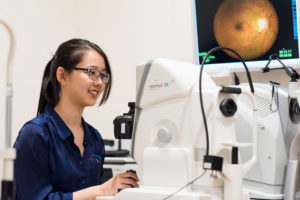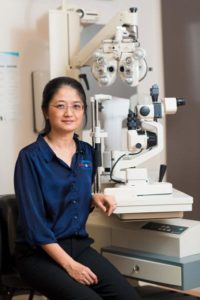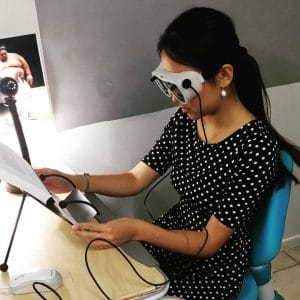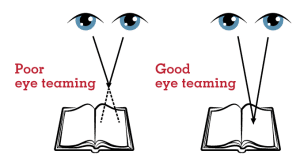With so many options abundantly available, it’s hard to know which optometrist to choose for your individual problems.
- Who can help when your eyes are constantly red and tired?
- How do you help your struggling child to read when you know that inside, they’re more than capable?
- What do you do when your optometrist is telling you that you can see fine, but you’re getting double vision at the end of the day?
- What do you do when glasses won’t fix your problem?
These are all common problems we see that often get brushed off by other eye care professionals. Our difference is in the philosophy behind treatment. Behavioural Optometry considers your vision and body as a whole, rather than just as eyeballs in your head. We treat vision based off your personal visual demands (such as work, school, and health) to ensure your eyes are working easily and comfortably for the things you need them for every day; not just the few minutes you are sitting in an exam chair.

Technology to look beyond the surface of the eye for signs of underlying eye diseases

Professional optometrists that care
As eye conditions can arise or worsen as a result of how you use them, we address the underlying problem to proactively prevent and treat ocular conditions, rather than waiting for a problem to arise before acting and using a ‘band-aid’ solution. This is why our care involves much more than just measuring your sight on a distance chart.
To find an optometrist who will look after all of your visual needs, look someone who will:
- Take the time to get to know you and your needs, taking into account of your lifestyle and work.
- Measure your vision and provided the prescription that gives the best balance between clarity and comfort.
- Investigate into the cause of any visual discomfort, including:
- Headaches
- Sore/red eyes
- Dry/gritty eyes
- Watery eyes
- Rapidly increasing prescription
- Intermittent blurry vision.
- External and internal eye examination to detect progressive eye diseases such as:
- Glaucoma
- Pterygium
- Blepharitis and dry eye
- Cataracts
- Macular degeneration
- Diabetic retinopathy
- Eye condition detection such as:
- Myopia (short-sightedness)
- Hyperopia (long-sightedness)
- Presbyopia
- Astigmatism
- Amblyopia (lazy eye)
- Strabismus (turned eye)
- Accommodative dysfunction (eye focusing problems)
- Convergence excess or insufficiency (eye muscle coordination problems)
- Colour vision defects
- Discuss findings of the examination and give the most suitable recommendation for your eye condition and advice on prevention, protection and maintenance to keep your eyes healthy!

The Readalyzer eye movement tracker. Detects signs of visual stress and eye tracking dysfunctions

Poor eye teaming can affect reading ability and learning potential
If your eyes are red and sore, we won’t simply give you medicated eye drops, we will investigate any environmental or behavioural the cause behind them.
If your child is struggling with school, we won’t peg it down to a lack of self-motivation, we will assess their vision based on eye muscle coordination, eye focusing, visual spatial and visual auditory skills.
If your prescription keeps increasing, we will actively look for a cause and solution.
If you are experiencing double vision, we will assess your eye muscle coordination and eye focusing abilities, and investigate any lifestyle factors.
